Michael Alexander speaks to award-winning playwright May Sumbwanyambe whose new play explores the life of African slave Joseph Knight who was brought to Scotland to serve in a Perthshire mansion.
Edinburgh-born writer May Sumbwanyambe was doing his law degree in Leeds when he first became fascinated with archival court cases that shone the light on “factual” black lives.
But it wasn’t until many years later when the National Theatre of Scotland commissioned him that he began to think seriously about writing a piece that reflected the “non-editorialised” contribution of black people to British society over the centuries.
“I was watching the Brexit referendum and kept seeing people on TV saying ‘we want our country back’,” May tells The Courier.
“For me it felt like there was a lot of coded language in there especially in English politics.
“People saying essentially like the country had been taken away from them, there was too much immigration, etc.
“I felt like that within that there was a myth that black people had only been here for a very short period of time.
“As though they only showed up with Windrush post-World War Two.
“When people said they ‘want their country back’, it was like they wanted to go back to this time before Windrush when everybody was essentially Irish, Scottish, Welsh, English and white.
“For me, what I was saying to the National Theatre of Scotland right at the beginning of this project was ‘you know what, I was ignorant to the amount of black history in this country, and I want to write a play that engaged with that factually led life’.
“I wanted it to be about someone who was here, somebody who made a social, political and cultural impact.
“I wanted it to be a way of creating an antidote to this editorialised version of history that ignores the presence and contribution of black people.”
Who was Joseph Knight?
Based on a true story, May’s historic domestic drama Enough of Him – a new production from the National Theatre of Scotland and Pitlochry Festival Theatre which opened in Pitlochry on Thursday – explores the life of Joseph Knight.
Joseph Knight, played by Omar Austin, was an African man enslaved by plantation owner Sir John Wedderburn in the 18th century and brought to Scotland to serve in his Perthshire mansion.
Knight became a notable figure in a landmark legal battle that saw him successfully appeal against a Scottish court’s decision that had reduced him to mere property in the ownership of his former master.
This victory affirmed that Scots Law could not uphold the institution of slavery in Scotland, a ruling that would make a profound contribution to paving the way for the abolition of slavery in Scotland /Britain.
Sumbwanyambe previously wrote The Trial of Joseph Knight – a drama focussing on the trial and its case, which was broadcast as a radio play on BBC Radio 4 in 2018.
Along with other plays he’s working on at the moment, he has ambitions to “essentially re-write Scotland’s story from the 1770s all the way to 1960 but through the point of view of Scotland’s black sons and daughters”.
He says that all too often in the past, ‘black history’ and ‘British history’ have been perceived as two different things.
The reality, he says, is that they are all one and the same thing.
Telling one story
“You cannot tell the story of black men in Scotland without telling the stories of white working class women in Scotland because the allied-ship between every single decade seems to go hand in hand,” he says.
“I think the real tragedy is we, through our education system and through the stories that have been allowed to get onto our stage, and TV and films, we’ve created an environment where it feels like you are almost doing something extra by putting black stories at the heart of British narratives. The opposite is so true.”
Man of empowerment
Joseph Knight is portrayed in the play as a man of empowerment to reflect the role he played in helping to change history.
But May says his involvement has been all too often “massively overlooked”.
“Let me give you an example,” says May.
“I remember watching a film called Amazing Grace about William Wilberforce about the passing of the 1833 Slavery Abolition Act, which abolished slavery in most of the British Empire.
“At the end of that film, Wilberforce passes the Act in parliament.
“The way the film projects it is a bunch of old white men all punching the air triumphant – it’s like we’ve just ended slavery blah blah blah.
“But it’s all p*sh. It’s absolute propaganda. That’s not how it played out.
“The whole argument that abolitionists were making all the way through was essentially that they believed human beings couldn’t be property.
“The only way Wilberforce was able to pass his act was to completely intellectually compromise.
“He turned around the side that got it through parliament and essentially said ‘we accept your argument – human beings can be property, and we will compensate you for that property’.
“What I know is at that point in history, it was so complicated that there was lots of people so furious about that – it wasn’t a triumphant moment. It was almost like a defeat.
“For me within that editorialisation of history, what’s happening is voices that were present and were powerful in terms of pushing that cause forward for abolition, including black people, have been minimalised to create this kind of nostalgic feeling that all these well-meaning white people essentially abolished slavery on their own.
“It’s beyond nonsense and madness.”
Complex characters
May, who’s interested in the “trauma” of slavery and its impact on human beings, says he has “no desire” to create a narrative where essentially there’s the shorthand of “white being bad and black being good”.
For him, the interesting thing about the past and slavery is that on each side of the debate there are complex characters, and this has been reflected in the play.
‘Bad’ people can do good things and ‘good’ people can do bad things.
He’s been using an analogy of capitalism with his actors in terms of trying to get underneath John Wedderburn’s skin and understanding how he might have seen himself as a ‘good’ person.
Even in the modern world, it’s very difficult to truly be a ‘good’ person when buying clothes that might have been made by modern slave labour, or when taking actions that harm the environment.
However, it’s something he thinks has sometimes been lost in recent Black Lives Matter-themed debates about the history of slavery.
“Sometimes in the public domain people are trying to win a debate and flatten arguments,” he says.
“I remember seeing public debate around Dundas (a controversial figure, who proposed a gradual abolition of the British transatlantic slave trade at a time when the leaders of the abolitionist movement sought an immediate end).
“No one who’s read about him will ever say this man wasn’t so ambitious his morality went out the window.
“This was a problematic person.
“But then there’s an argument being put forward from people on my side of the debate that if only Dundas was struck down with lightning, slavery would have ended 30 years prior which is so simplistic it’s infantile.
“For me writing this play has to be an antidote for that.
“I have the absolute privilege and luxury of taking my time with these stories and really truly researching them and actually holding the microscope up to the condition of the human being rather than the back and forward debates that often take place over f****** Twitter!”
Has May experienced racism?
Born in Edinburgh. May’s parents were originally from Zambia.
His father’s first job was physician to the first president of Zambia.
He came to Scotland, trained as a doctor, and his mum was a nurse in the NHS.
May, who regards himself as Scottish, says they’ve had a “good life” here.
But that doesn’t mean that “things couldn’t be better”.
While he’s largely avoided racism by “individuals” over the years, May cites an experience in Edinburgh and one in Leeds, both with the police.
Describing the one in Edinburgh as a “little bit more tame”, he explains how he was once standing at the bus stop having been to the supermarket when a police officer stopped and said they were looking for someone who’d committed an alleged crime.
May, who remained polite, recognised the officer was doing his job.
But when he asked him if he had a picture of the suspect, the officer pulled out a picture of a man who looked nothing like May – the only similar thing being that they were both black.
“I could see the shame on the lad’s face – he was so apologetic,” says May.
“He knew he had f***** up! I let it be.
“But I remember thinking to myself, in London and certainly in America, that situation could have escalated very quickly.
“And if I don’t sound and carry myself the way I do, maybe that becomes a very hostile environment and actually that’s when you see the stats of how those kind of interactions with the police cam escalate into something that’s so much worse.”
Concern about ‘very dark road’
May doesn’t go into detail about what happened in Leeds.
But he knows that racism there, and elsewhere, is real and requires pro-active anti-racism measures.
He also worries about the “very dark road” being ventured down in England since Brexit.
“From the top to the grassroots there’s something shifting in England,” he says.
“I wouldn’t want to live there. It’s madness. I’m very happy living in Scotland. The tone and the politics are better. Dare I say it, we’ve even got a better version of the Tories!”
Where and when to see Enough of Him
*Enough of Him runs at Pitlochry Festival Theatre from October 20 to October 29 then tours before running at Perth Theatre from November 16 to 19.
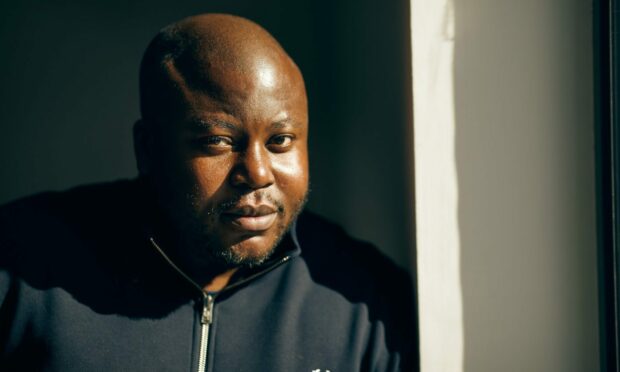
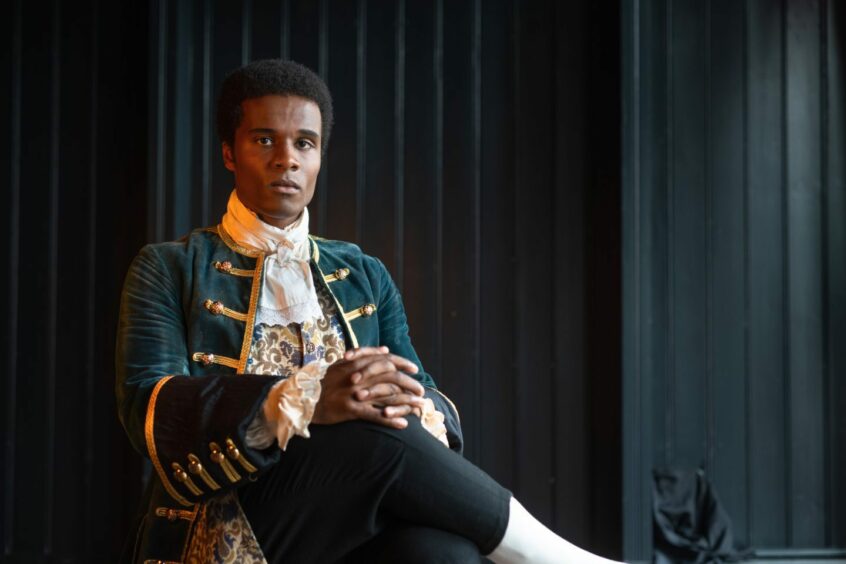




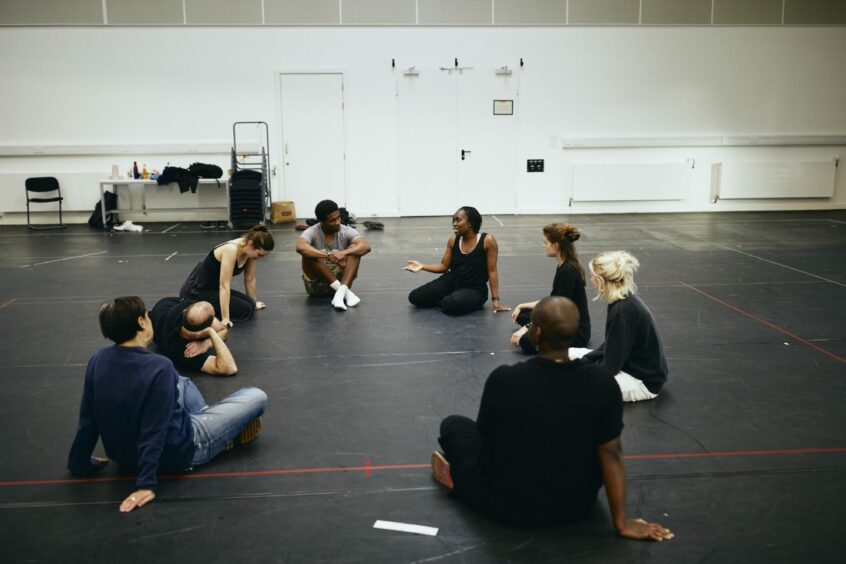

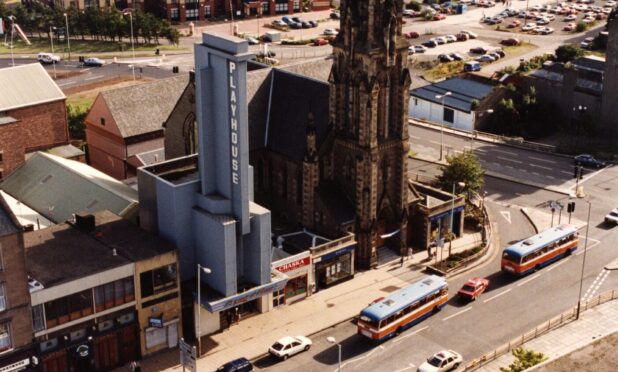
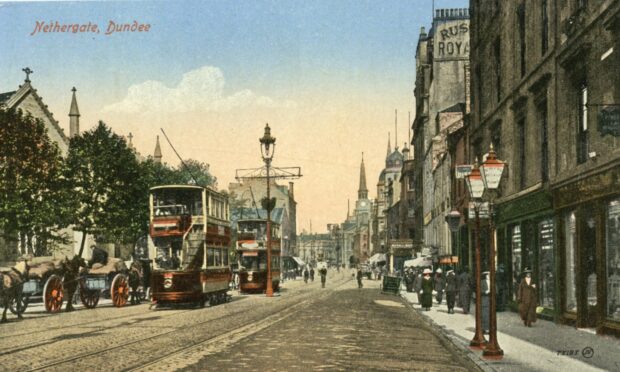







Conversation